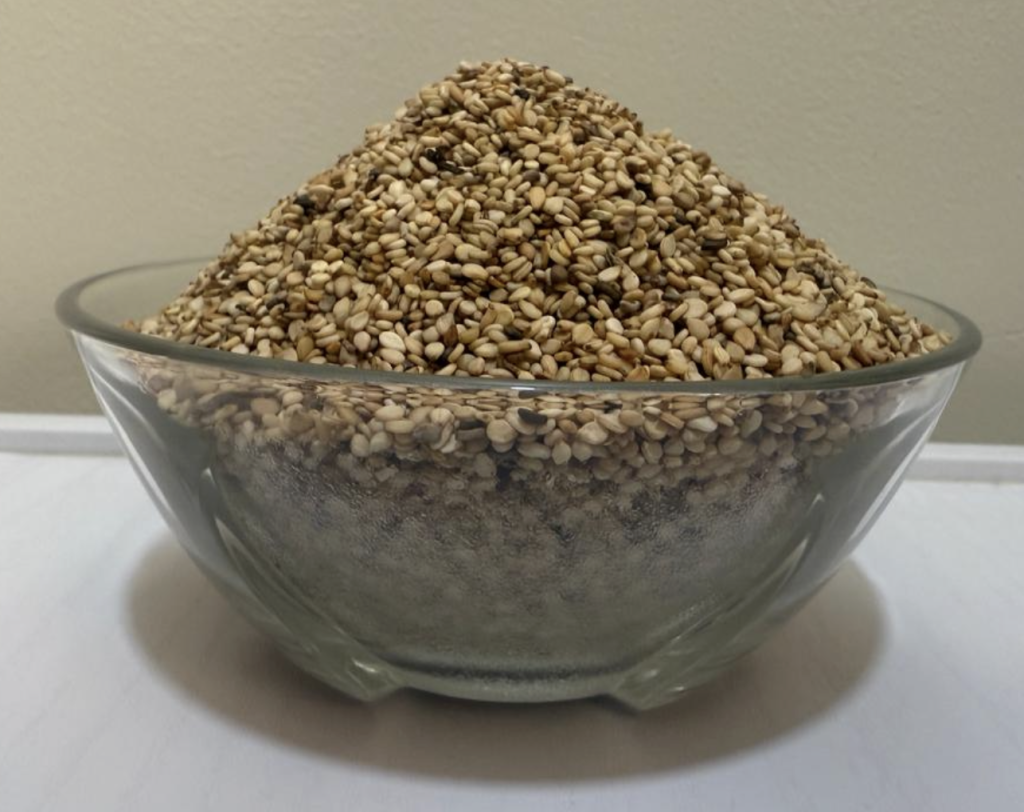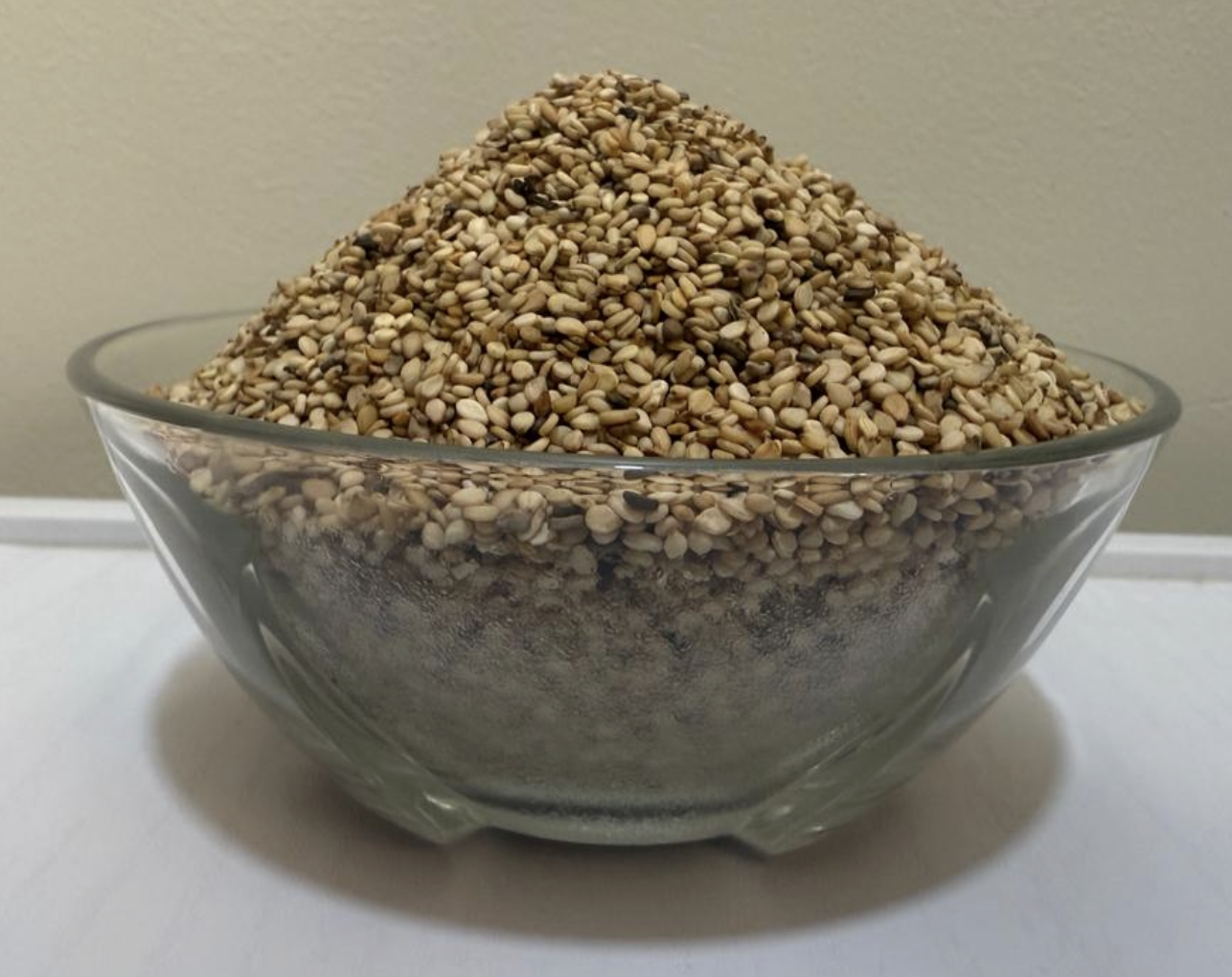
Sesame (Sesamum indicum) is one of the oldest oilseed crops, domesticated more than 3,000 years ago
Sesame seeds, tiny yet nutritionally potent, have been cultivated for thousands of years and are prized for their rich, nutty flavor and numerous health benefits. These small, oil-rich seeds come in different varieties, each with unique culinary and medicinal applications. From enhancing the taste of dishes to providing essential nutrients, sesame seeds are a staple in many cuisines worldwide.
Types of Sesame Seeds
Sesame seeds are primarily categorized by their color, with the most common types being white, black, and brown. White sesame seeds, also known as hulled sesame seeds, are the most widely used. They have a mild, slightly sweet flavor and are often found in baked goods, tahini, and as a garnish. Black sesame seeds, on the other hand, have a stronger, earthier taste and are commonly used in Asian cuisine, particularly in desserts and savory dishes. They are also valued in traditional medicine for their high antioxidant content. Brown sesame seeds, which are unhulled, fall between white and black seeds in terms of flavor and nutritional profile, offering a slightly more robust taste.
Culinary Uses of Sesame Seeds
Sesame seeds are incredibly versatile in the kitchen. They can be used whole, toasted, or ground into a paste. In Middle Eastern cuisine, sesame seeds are the key ingredient in tahini, a creamy paste used in hummus and dressings. In Asian cooking, they are sprinkled over sushi, stir-fries, and noodle dishes for added texture and flavor. Sesame oil, extracted from the seeds, is a popular cooking oil in many Asian dishes due to its rich aroma and high smoke point when refined. Additionally, sesame seeds are used in confectionery, such as halva, a sweet treat made from sesame paste and sugar.
Health Benefits of Sesame Seeds
Beyond their culinary appeal, sesame seeds are packed with nutrients that contribute to overall health. They are an excellent source of healthy fats, including omega-6 fatty acids, which support heart health. These seeds are also rich in protein, fiber, and essential minerals like calcium, magnesium, and zinc, promoting bone strength and immune function. The presence of antioxidants, particularly in black sesame seeds, helps combat oxidative stress and inflammation. Additionally, sesame seeds contain lignans, such as sesamin and sesamolin, which have been linked to lower cholesterol levels and improved blood pressure regulation.

Incorporating Sesame Seeds into Your Diet
Adding sesame seeds to daily meals is an easy way to boost nutrition. They can be sprinkled over salads, yogurt, or oatmeal for a crunchy texture. Toasting sesame seeds enhances their flavor, making them a great addition to homemade bread or granola. For a nutrient-dense spread, tahini can be used in sauces or as a dip. With their impressive health benefits and culinary versatility, sesame seeds are a small but mighty ingredient worth including in a balanced diet.
In conclusion, sesame seeds are more than just a garnish—they are a powerhouse of nutrients and flavor. Whether used in savory dishes, sweets, or as a health supplement, these tiny seeds offer immense benefits that have been cherished across cultures for centuries.
For more information, check us on WhatsApp

